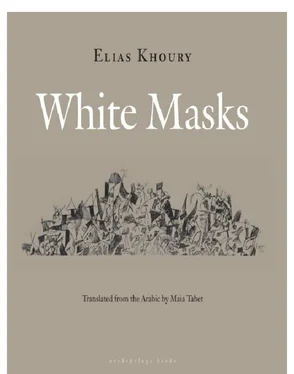“I can’t,” he said. “I’m really bad, I can’t move. Leave me here and you run for it. .”
Then I saw his tears. . a grown man, with a thick mustache, and tears silently washing down his blackened face.
“You go on, I’m not going to make it.”
I picked him up and hoisted him onto my shoulder. His body was a dead weight and he was having trouble breathing. We left the chalet and I started up the mountain. I knew that our side was stationed on the eastern flank, so I walked eastwards… Just him and me, miles from anywhere, with nothing but mountains and snow around us, and the cloud-studded sky. . Climbing up that mountainside, with him slung across my shoulder, I was gasping for breath. I could hear my heartbeat ringing in my ears, and I thought I was going to collapse. My legs felt like a solid aching mass gradually spreading upwards, and with him pressing down against it, I thought my chest would burst.
I stopped, and eased him down to the ground gently. He lay motionless against the snow, with the congealed blood around his stomach dark and thick. I sat down beside him. He asked for water, and I thrust my bottle towards him, but he couldn’t hold it, so I opened it and held it to his lips. He took a few sips and said, “Leave me, it’s too far, we’re not going to make it.” Then he began to shiver, his teeth chattering from the cold. I took off my jacket and covered him, he was shivering so much his entire body shuddered and his teeth clattered in my ears. I sat beside him in silence and, gradually, the shivering subsided.
“We can go on now,” I said.
“Leave me,” he repeated. “I’m dying. It’s a long way, and you won’t make it.”
I put my jacket back on and hoisted him once more onto my shoulder — the hills stretching endlessly before me, I carried on with him dangling over my back, hot and feverish. I kept climbing upwards, as snow filled my boots and my feet turned to blocks of ice, and he continued to shiver from the fever running through his body. When I felt I couldn’t go on, I stared at the ground doggedly and kept going. But then I had to stop, I just couldn’t go any further. I could see a little hollow that had been carved out by heavy artillery, so I put him down and he crawled towards the hollow. I covered him with my jacket again.
“Listen,” I said.
His face was the color of chalk, white as the snow, his lips yellow, his eyes shut.
“Listen,” I repeated. “I’m going to. .” He murmured something inaudible. “Louder,” I told him, “a bit louder, I can’t hear you. .”
He repeated the same words. . just that one little sentence. . nothing else. .
“It’s been a long day…”
“Listen,” I said again. “The water bottle is here next to you and I’ve covered you with my jacket. Stay still, don’t move. I’m going on to the next position to fetch some help.”
“It’s been a long day. .”
“Listen, I’m going. Do you need anything? Sameeh, do you hear me, we’ll be back soon, don’t worry, we won’t leave you here. I’ll be back with them in less than an hour and then we can carry you properly. Did you hear me?”
“Such a long day…”
“I’m leaving now. Do you need anything? I’ll be back. Stay right where you are and don’t move.”
I set off, leaving him lying in the hollow, shaking under the khaki jacket, with the water bottle next to him. I realized I was thirsty and had a long way to go, so I came back, picked up the water bottle and drank. I drank greedily, almost finishing the bottle, and still my thirst wasn’t quenched. But I had to leave him some, so I stopped, and put the bottle back next to him. I leaned down close, he was still breathing, with his head propped against his chest, his body all curled up on itself.
“Sameeh,” I said one more time, “I’m coming back, wait for me.” And I set off again.
I was climbing nimbly now, hurtling along, jumping where I could, as if I had rid myself of a great burden, going steadily eastwards. I didn’t feel frightened, I was sure I wouldn’t lose my way in the hills. Only now, when I picture myself on that solitary eastwards journey through the hills, after leaving Sameeh in the hollow, do I feel frightened. What if I had got lost with no food or water? What if I had stumbled on their positions, not ours? And why had I drunk from the water bottle? The mountain was covered in snow, and I had drunk the water in the bottle and left him so little!
I walked and walked, and after three hours without a moment’s rest, I finally reached our positions. I could see my comrades in the distance and could hear their voices.
“Fahd is here,” one of them said.
First Lieutenant Omar led me to his tent. There, I drank my fill, then tea was brought and he started questioning me about the numbers involved in the attack, the weaponry they had used, and the ensuing skirmish. I told him they’d attacked in waves, that the skirmish was over quickly, but that the shelling had continued and I withdrew under fire.
“That shelling was from our side,” he said. “We assumed the position had fallen to them, so we shelled it.”
Then I told him about Sameeh.
“Poor bastard,” he answered.
I told him we had to go back for him. “Where did you leave him?”
“Three hours from here.”
“That’s impossible.”
“What’s impossible?”
“We can’t go back.”
“What do you mean we can’t? We’re just going to leave him there to die!”
“Yes. I can’t jeopardize the lives of ten men for the sake of one. The hollow where you left him is now in enemy hands.”
“But I promised.”
“I’m sorry.”
“What do you mean, you’re sorry?”
“He’ll be a martyr to our cause.”
I began to scream.
“Listen Fahd,” he said, “this is a war, we’re not playing cops and robbers here. Fighting a real war means sacrifices have to be made.”
I was almost in tears, desperate to get back to him. “But I promised, Comrade Omar! I left him in the hollow, covered with my jacket, and I promised I’d be back.”
“Take it easy, Fahd. He’ll become a war hero and live forever in the glory of martyrdom.”
“That’s outrageous!”
“OK, enough now. It’s over.”
And that was that.
I would not have gone back had I been asked to do so, but I was screaming because I knew that no one would make such a request.
It was all over.
It had been a long day.
Samar was still talking with that strange excitement of hers. “Listen,” she said, “you’re not listening! We have to publicize the justice of our cause and expose their fascistic practices; the killing, the rape, the looting, the house demolitions and dispossessions. That is the role of progressive cinema! It’s our job to document such atrocities!”
“But we do the same,” I told her. “We too are guilty of crimes, of killing, of. .”
“That’s not true! What you’re saying isn’t true!”
“It’s true. I swear to God! Remember Damoor? When we were in Damoor. .”
“Don’t you start up about Damoor! Why don’t you tell me about Maslakh and Qarantina, about Naba’a and Tall al-Zaatar instead!”
“Please. There’s no need to use that tone of voice. I’m only speaking the truth.”
“What truth! That’s not the truth. The truth must serve the revolution. That kind of talk just undermines our cause.”
“The truth must serve the truth. Period.”
“And war is war. Period.”
“Don’t I know it! As God is my witness, you think I don’t know that ‘mistakes’ are made in all wars, and that it’s all about ‘strategic momentum and political gain’? All I’m saying is, that we too are guilty of ‘mistakes.’”
Читать дальше












